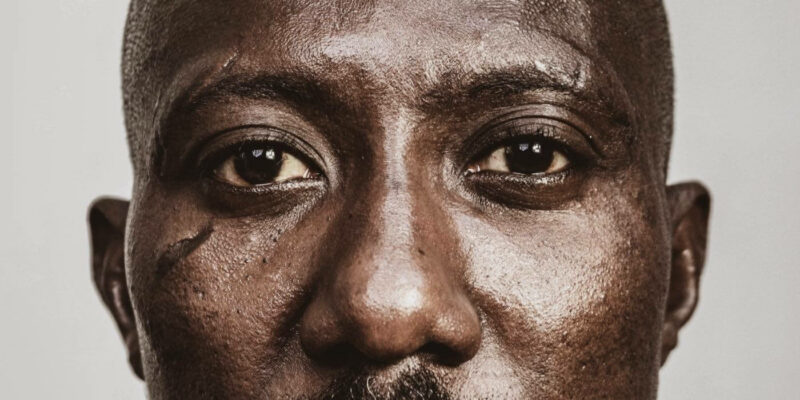It’s a common belief that some people are just highly emotional by nature while others have a more stoic and balanced temperament.
And even though there are likely some genetic influences on how emotional we are, the much bigger influence is something most people don’t realize:
It’s your habits that determine how emotional you feel, especially your mental habits.
In my job as a psychologist, I work with people every day who feel emotionally unstable and volatile:
- They get lost in spirals of worry and anxiety.
- They get stuck in bouts of depression and low mood.
- They get angry and upset at the smallest stress or difficulty.
But it’s been my experience that what leads to all this emotional instability is a collection of subtle but powerful mental habits. Usually, these habits were learned and reinforced long ago in early childhood but never got unlearned.
Luckily, anyone can learn to become more emotionally stable. The key is to identify and eliminate these mental habits that cause so much excess emotional suffering.
1. Believing your thoughts
Just because you have a thought doesn’t make it true.
As humans, our ability to think rationally and creatively is one of our greatest strengths. Without it, we wouldn’t have Beethoven’s sonatas, democratic forms of government, the novels of Charles Dickens, or a cure for polio.
But for every interesting, creative, or even genius idea our minds produce, it also generates hundreds, if not thousands, of silly, irrational, or just plain bizarre thoughts that have no meaning whatsoever.
Here’s an example:
2 + 2 = 5. If you read that, the thought 2 + 2 = 5 was in your head. But the simple fact that you thought it doesn’t make it true.
But it’s not just irrational thoughts that our mind produces. The mind is also capable of generating thoughts that are actually unhelpful or even downright evil. Thoughts can lead to concentration camps and chemical warfare just as easily as Habitat for Humanity or the Peace Corp.
The point is this:
Your thoughts are not inherently true or helpful. And to assume they are is a recipe for emotional suffering.
When you assume every thought your mind throws at you is true, you end up thinking more about that though:
- If an irrational worry about your spouse dying in a car crash on their way home from work pops into your mind, your habit of believing all your thoughts is going to lead to a lot of excess anxiety.
- If an irrational judgment of a coworker pops into your mind, your habit of believing all your thoughts is going to lead to a lot of excess frustration and possibly rude behavior.
- If some negative self-talk about a recent mistake you made pops into your mind, your habit of believing all your thoughts is going to lead to a lot of excess guilt and shame.
Overthinking is at the root of most forms of emotional suffering. Stop believing that all your thoughts are true, and you’ll stop overthinking so much.
Struggle with Overthinking? The best way to break your overthinking habit is to build a Scheduled Worry practice →
2. Emotional self-judgment
It doesn’t make sense to judge yourself for things you can’t control, especially your emotions.
No legal system in the world that I’m aware of would sentence someone to prison for feeling angry. No matter how rageful a person felt, as a society, we only judge people for what they do—for their behavior.
And the reason for this is simple: It doesn’t make sense to judge someone for something they can’t control. And you can’t directly control how you feel: you can’t just turn down your sadness any more than you can crank up your happiness!
But it’s a strange quirk of human nature that while we know this is true, especially for other people, we ignore it when it comes to ourselves:
- We empathize with other people for feeling anxious but tell ourselves we’re weak the minute we start to feel nervous about something.
- We’re understanding with friends who are feeling depressed or grieving, but we tell ourselves to “suck it up” and “stop being such lazy bum!”
It’s more than a little ironic:
You’re compassionate with your friends when they feel bad, but the moment you begin to suffer emotionally, you criticize yourself for it!
One of the problems with judging yourself for how you feel is that it adds a second layer of painful emotion on top of the pain you already feel:
- When you put yourself down for feeling sad, now you feel sad and ashamed.
- When you worry about feeling angry, you feel anxious on top of feeling angry.
- When you criticize yourself for feeling afraid, now you feel frustrated and scared.
Feeling bad is hard enough without making yourself feel bad for feeling bad.
If you want to break free of the habit of criticizing yourself for how you feel, learn to practice a little self-compassion.
Learn More: In Defense of Feeling Bad
3. Trying to find meaning in everything
Looking for meaning in everything is often a defense mechanism against the fear of uncertainty.
It’s human nature to dislike uncertainty. From which color shoes to buy to committing to a spouse in marriage, there will almost always be some uncertainty in our decisions, and along with it, some anxiety.
But for some people—especially those raised in chaotic or extremely unpredictable environments—they’ve learned to view uncertainty as dangerous and to be avoided at all costs. And one common way to avoid the anxiety of uncertainty is to read meaning into everything.
By telling ourselves that everything means something, we give ourselves the illusion of certainty.
But if you constantly rely on meaning-making as a crutch to alleviate the anxiety of uncertainty, your tolerance for uncertainty gets weaker and weaker.
And at some point, reality will catch up to you, demanding that you face up to the fundamental uncertainty of life:
- Maybe a close friend dies tragically at a young age for “no good reason.”
- Maybe you get laid off from your dream job for “no good reason.”
- Maybe your spouse leaves you for “no good reason.”
Making up stories about how it all means something eventually stops working when the uncertainty becomes big enough. And if you haven’t built the emotional strength to tolerate uncertainty, your moods and emotions will suffer profoundly. Depression and severe anxiety are often the results.
Emotionally stable people have the strength and willingness to accept uncertainty for what it is—to look an uncertain future in the face and accept it.
Practice accepting uncertainty in small ways and you’ll be able to handle it confidently when it arrives in big ways—as it always does eventually.
Learn More: 7 Ways to Reduce Chronic Anxiety
4. Trying to control everything
Control issues are usually a sign of insecurity and a fear of helplessness.
Just like the need to find meaning everywhere is a sign you’re afraid of uncertainty, needing to control everything is a sign you’re afraid to feel helpless.
Trouble is, you are helpless. At least in a lot of cases. It’s simply the nature of life that we can’t control everything we wish we could:
- You can’t control whether your best friend stops smoking so much weed every day.
- You can’t control whether your boss thinks you’re smart.
- You can’t control whether your spouse feels stressed out at the end of the day.
Your power and influence in this life are limited.
You can try to influence people in the way you think is best, but it’s a mistake to assume responsibility for the outcomes.
When your unconscious belief is that you should be able to control the outcome of everything, you end up with unrealistically high expectations for yourself. And inevitably, these expectations get violated, leading to big emotional swings:
- You walk in on your best friend smoking weed after he told you he’d quit, leading to a surge of frustration and disappointment.
- Your boss gives you a bunch of negative feedback after a presentation you thought was great leading to shame and self-doubt.
- Your spouse comes home stressed again despite the fact that you called them that day at lunch to check in leading to anger and resentment.
Remind yourself that it’s okay to feel helpless. Sometimes we just can’t help. Living in denial about that isn’t going to help anyone in the long run—least of all yourself.
Lowering your expectations to a realistic level doesn’t mean you don’t care. It means you’re being honest with yourself.
Finally, have the humility to accept that you can’t control nearly as much as you’d like. Do your best, but don’t pretend that you’re God.
Learn More: Creating Calm: A Proven System to End Chronic Worry and Anxiety
5. Emotional reasoning
People who spend their time running away from painful feelings usually have no energy left for the things that matter most—their goals and aspirations.
We all want to feel good. But the decision to feel good now often comes at a heavy cost for how we feel later:
- Asking a friend for reassurance when you’re worried feels better now. But in the long-run, you’re teaching your brain that you’re not capable of dealing with your own anxiety. This erodes your confidence and makes you more anxious long-term.
- Letting that sarcastic comment fly during an argument with your spouse feels good in the moment. But in the long-run, you’re destroying trust in your relationship.
- Staying in bed because you’re not motivated feels better now. But in the long-run, you’re killing your self-esteem because you’re training your mind not to believe that you follow through on your commitments to yourself.
It’s not that emotions and feelings are bad or always misleading: sometimes they’re quite useful!
But it’s a mistake to treat your feelings as gospel: The reality is that our emotions are often in direct conflict with our values.
If you want to feel more emotionally balanced, you must learn to subordinate your feelings to your values.
And the best way to do this is by consistently reminding yourself of those values and aspirations:
- Do I care about feeling cozy in bed or getting down to my goal weight and being healthy and vital?
- Do I care about feeling less anxious now or become a confident person?
- Do I care about feeling right or having a good relationship with my spouse?
You can make decisions based on how you want to feel or your values. Choose wisely.
Learn More:
All You Need to Know
Everyone experiences painful emotions. Becoming a more emotionally stable person means that you improve your relationship with your emotions by cultivating healthy ways of responding to them:
- Don’t believe everything you think.
- Resist judging yourself for how you feel.
- Let go of your need to find meaning in everything.
- Give up trying to control everything.
- Make decisions based on your values, not your feelings.
Next Steps
If you’re interested in working directly with me, twice a year I lead a small group of students through my 4-week emotional resilience masterclass: Mood Mastery →





18 Comments
Add YoursSo many excellent points for me to ponder. I love your quotes at the end of each topic! Thank you so much for thinking deeply !
EXCELLENT! 5 g5reat tak aways – I need!
Thank you, Nick for this wonderful piece, it was insightful and deeply profound.
I have been dealing with negative emotions lately and I have been asked to snap out of it or avoid getting entrapped in it.
Reading your article now made me understand that negative emotions are not something to be avoided like a plague or disease.
This is great stuff. Powerful and insightful but easy to understand. Thank you.
The quote selection is amazing. Thanks for sharing this information with specific examples. This helps me a lot for putting action into it.
>>>Asking a friend for reassurance when you’re worried feels better now. But in the long-run, you’re teaching your brain that you’re not capable of dealing with your own anxiety. This erodes your confidence and makes you more anxious long-term.<<< yet ppl w/ anxiety/depression told over and over to lean on friends, family, therapists. ??
Examples are trivial and unhelpful. *(You walk in on your best friend smoking weed after he told you he’d quit, leading to a surge of frustration and disappointment.
Your boss gives you a bunch of negative feedback after a presentation you thought was great leading to shame and self-doubt.
Your spouse comes home stressed again despite the fact that you called them that day at lunch to check in leading to anger and resentment.) You are unemployed, rents are skyrocketing, food costs are skyrocketing,…..No, have no control but anxiety/depression are real. Allowing myself to feel helpless doesn't get rid of the roilinf stomach, the insomnia, the rapid shallow breathing,…. Advice good for people who really have no problems; not much help for those who do.
I dont think he meants not ever leaning on someone. I think his point was to help yourself not to solely rely or base your happiness on other people’s validation. I do think Wester culture emphasizes hyper independence to a concerning degree. It’s essential to rely on others when you’re feeling low. But constantly asking for validation hurts both you and others around you in the long run. It’s important to be able to trust yourself and be there emotionally for yourself when other people can not.
Also, you are very smart for bringing up the current economical crisis we re going through. It’s honestly impossible for adults to get by now.
I’d say it’s pretty sound advice for me personally. I’m sorry it doesn’t resonate with you. I hope you can find ways that help you!
Thank you, Nick. Like your style of breaking it all down in user-friendly steps to practice.
This has helped me…
“Be curious, not judgmental”
— Walt Whitman
This really gave me “ food for thought”. Especially the “ subordinate your feelings to your values”, which can be eroded… in retrospect by my ability to let my feelings engulf me at the time which then can be followed by guilt and shame. I intend to practice this. Thankyou.
Could you give an example of this, please? “Practice accepting uncertainty in small ways and you’ll be able to handle it confidently when it arrives in big way”
I really enjoy your refreshing take on mental health and explanations of emotions. Thank you for being a bright light in this community that needs the rational perspective.
Thanks Nick, you posted the article right when I needed it. Well said and great points. It made a lot of sense. The article was to the point and while it may not be possible to put all points to action in one go, one can feel much better even if they put 2 or 3 to action to begin with. Thanks again for being generous and sharing useful knowledge.
So then never ask for any help or reassurance? That doesn’t sound healthy to me. Sure, my wife can be right all of the time and I’ll just be a doormat. So just don’t believe anything that you think. Great! Sounds like a great way to build self confidence
Great advice. Spot on. I’m going to bookmark this page.
I grew up with emotionally volatile parents. While they allowed their own emotions to lay openly on their sleaves, we were scorned for expressing ours. As a result, we learned to stuff everything down. I never learned that it was ok and natural to release overwhelming emotions through loud hearty laughter, convulsive sobs, or frightened screams. I stuffed everything down until I was numb as a stone to everything. All the while I was secretly hiding a fear I’d show some form of “weakness” to them and be scorned for it. I think also deep down I was secretly worried that if I let my emotions show, I’d become like my parents, reckless and cruel. It has taken a looong time to relearn things. Today I have a mental health checklist I read every day. It keeps me accountable to new and more positive habits that improve my emotional stability and mental health. Thanks again for sharing. I plan to print this out!
This is a fascinating perspective! As someone who often struggles with emotional rollercoasters, the idea that it may be more about my habitual thinking than some inherent emotional fragility is eye-opening.
This is totally applicable to me at this moment! Well, if only I’d read it again two days ago.
But moving forward, this knowledge and insight is so helpful.
Thanks Nick.
Simmone ☺️
I’m having a hard time believing this was written by a psychologist? Doesn’t sound like a good psychologist to me. Like somebody else said in the comments, these might be some good advices for normal people, but NOT for those who are actually suffering from mental illnesses. Or maybe because the author isn’t a clinical psychologist so they tend to oversimplify mental illnesses?
Thanks! I will change enjoy life more!
Your assistance and insight have been invaluable, and I am truly grateful. It is my deepest gratitude for the priceless support and direction you have given me.